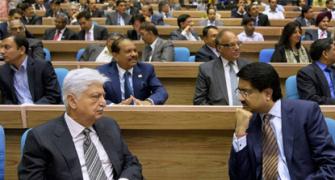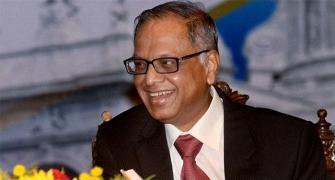
If there is one regulation that has undergone the highest number of changes over the past five years, it is the Issue of Capital Disclosure Requirements (ICDR) Regulations, governing capital raising activity.
Under current chairman U K Sinha, the Securities and Exchange of Board of India (Sebi) has introduced new fund raising avenues like offer for sale (OFS), changed the initial public offer (IPO) allotment process to help small investors and taken steps to curb listing day volatility.
According to an analysis, Sebi has amended the ICDR regulations not less than 30 times since 2011.
Significant, as the past five years have been volatile for fund raising, especially through the IPO route.
“The regulations have got amended multiple times in the past few years and on a number of occasions, the changes were to deal with specific issues and concerns faced by the markets and investors. Many of the changes were also needed from an investor protection perspective,” said Tejesh Chitlangi, partner at IC Legal.
Those in the sector said a majority of changes were in response to market feedback and to plug loopholes.
For instance, Sebi has introduced a retail quota in OFS, following a government push for more participation of small investors in divestments.
Sebi has also extended OFS platform to private equity firms and other non-promoters.
Some changes on the IPO side include doing away with the mandatory rating requirement and including the track record of investment bankers in the IPO document.
Sebi has also doubled the anchor investor quota.
“The numerous changes are to keep pace with business dynamism. The regulator has been pro-active in preventive and curative changes, taking cues from global standards and adapting these to the Indian context. If one needs to have ease of doing business and be a vibrant market, these changes and keeping pace with these is inevitable,” said Mahavir Lunawat, managing director, Pantomath Advisory Services.
Follow-on public offers and rights issues also saw changes. For instance, Sebi reduced market cap requirement to ensure a fast-track mechanism for both.
Changes have been made to suit bourses’ small and medium enterprises platform and for the start-up platform.
These are alternative avenues for fund raising, with lesser regulatory requirements.
Some changes, say others, have also negatively impacted the fund raising activity. “Certain stringent requirements prescribed for issuers and merchant bankers, coupled with certain other onerous regulations and compliances for listed companies, have made life difficult for issuers. This has resulted in fewer offerings over the past few years,” adds Chitlangi.
And, more changes are in the offing. Last week, Sebi issued a discussion paper on an exit offer to dissenting shareholders, likely to become operational next year. This would again make companies solicit legal advice before a proposal to go public.










